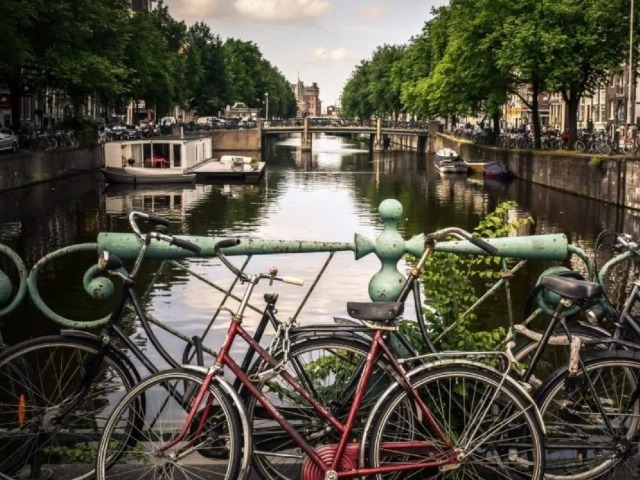COVID-19, the Netherlands, and Human Rights: A Balancing Act
| Date: | 26 May 2020 |

Written by Brigit Toebes, and originally published as part of “Global Responses to COVID-19: Rights, Democracy, and the Law (https://blog.petrieflom.law.harvard.edu/symposia/global-responses-covid19-rights-democracy-law/),” a digital symposium on Bill of Health, the blog of the Petrie-Flom Center for Health Law Policy, Biotechnology, and Bioethics at Harvard Law School.
The Netherlands, a country with 17 million inhabitants, had its first COVID-19 hospitalizations in the beginning of March 2020. On March 16th, Prime Minister Mark Rutte announced a range of measures aimed at “maximum control,” but not “maximum containment” of the virus: in other words, social distancing measures, but no full lockdown.
After an initial two-month closure, schools, sports clubs, bars and restaurants began gradually reopening after May 18th. All major events, however, remain cancelled until further notice. According to the statistics, by May 22, over 11,000 people had been hospitalized and nearly 5,800 people had died.
Restricting civil and political rights
The main regulatory vehicle used to enact the control measures is the Wet publieke gezondheid (Wpg) — the Public Health Act. Based on this act, COVID-19 has been categorized as a so-called “type-A-disease,” which means the strictest regime can be imposed. The 25 “safety regions” in the Netherlands drew up emergency regulations, providing a basis for enforcement. Police can act if necessary, and possible punishments include prison sentences. While the latter have not yet been issued, considerable fines have been imposed.
These emergency regulations have been criticized to some extent. Critics have warned that the emergency regulations have an insufficient basis in the law, and set aside the democratic control by Parliament and by the local councils. Specifically, concerns have been raised regarding the protection of privacy in homes; limitations to religious freedom; impacts on the right to education via the closure of schools; as well as general restrictions on freedom of movement.
While these are matters of concern that should be followed closely, compared to around fifteen European countries that have declared a state of emergency, the overall approach is still relatively moderate.
Economic, social and cultural rights and the protection of vulnerable groups
Thanks to a well-functioning healthcare system and compulsory health insurance, the demands of patients seeking care for COVID-19 have generally been met. Yet the crisis could have been curbed more effectively had the Dutch government responded more rapidly to the crisis with a range of timely interventions.
Furthermore, critics have blamed the privatization of the Dutch health insurance system for certain efficiencies that, in this time of crisis, have amounted to shortages of medical equipment necessary for the treatment of COVID-19 (ICU beds and drugs, tests, masks, gloves).
Lastly, the crisis also has led to drastic postponement of regular care.
From the perspective of guaranteeing the right to health, the Dutch healthcare system has responded adequately when it comes to providing necessary care for COVID-19 patients. Yet for future outbreaks, government should rethink its strategies in terms of taking timely action, ensuring the availability of drugs and medical equipment, and maintaining access to regular care.
People residing in care homes have been among the most vulnerable in this crisis. Many residents have been infected, as well as poorly-equipped staff. Residents also felt deprived and isolated as they were unable to see their relatives. Another (https://www.njb.nl/media/3704/njb14-art2.pdf) concern is that attorneys were not allowed to speak in-person to their clients residing in care homes and psychiatric institutions. Case law in relation to vulnerable persons is gradually emerging. On April 2nd, 2020, the Court of Midden Nederland decided that custody over a psychiatric patient with (suspected) COVID-19 was to be continued, given that the patient would otherwise be a threat to herself and to society. It is expected that there will be many more of these types of cases in the months to come.
Furthermore, as in many other countries, there is concern that many will suffer from the economic crisis that is gradually emerging. In March this year, the Dutch government (https://www.government.nl/latest/news/2020/03/19/coronavirus-dutch-government-adopts-package-of-new-measures-designed-to-save-jobs-and-the-economy)adopted a package of measures designed to save jobs and the economy. There is, nonetheless, much concern that the looming crisis will affect companies, employees, and individual contractors. From a human rights perspective, this may affect rights to an adequate standard of living, employment rights, and rights to social security.
Advance Care Planning
A particular feature of the Dutch healthcare system is an open culture about death and dying. Gradually, the evidence emerged that if an older person with COVID-19 is in poor health, intensive care is often not a realistic option for saving his or her life. In the light of this evidence, healthcare providers have been encouraged to hold ‘Advance Care Planning-conversations’ (ACP) with their COVID-19 patients, designed to discuss patient wishes, goals, and preferences of care, with the aim of making informed and realistic choices that suit the individual situation of the patient. Many older persons have indicated that they do not want to be placed in the ICU. Overall, while this approach seems to have been reviewed positively thus far, there is a risk that older persons have been too actively discouraged to opt for intensive care.

